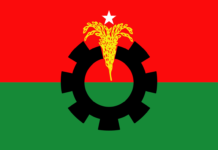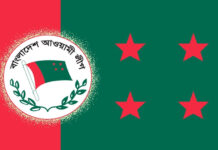
State Minister for Foreign Affairs Md Shahriar Alam has expressed doubts over BNP’s willingness to engage in dialogue with the ruling Awami League.
He told diplomats during a briefing on Thursday that the BNP must “genuinely prove” its eagerness to resolve any crisis through dialogue.
Alam also conveyed the Prime Minister’s message that they were ready for dialogue if the BNP spurned violence and cut ties with the Jamaat-e-Islami.
His comments came after diplomats, particularly from the Western countries, called for dialogue between the two parties after the Jan 5 elections.
The Awami League formed government after the elections in which BNP did not join resulting in more than half of the seats returned uncontested winners.
The international community, particularly the EU and the US, have criticised the elections, but the junior minister said they did not feel pressure from any international quarter.
India, China and Russia supported the government soon after Sheikh Hasina was sworn in for the second successive term.
The briefing, first of the new government, came a day after BNP Chairperson Khaleda Zia’s news conference where she called fresh protest programmes that include countrywide rally and wearing black badges.
Alam told diplomats that the government had “no interest” to stop the Opposition’s “legitimate, peaceful political programmes”, but it must give “primacy” to saving public life and property from “BNP-Jamaat’s wanton destructive activities”.
He said the Prime Minister had already instructed the administration and law-enforcing agencies to maintain “zero-tolerance” on any form of terrorist and violent acts.
He, however, said the government took “positive note” of Khaleda’s dialogue call and peaceful protest programmes.
But he told diplomats that they were “disappointed” as Khaleda had “put all blames for violence, including those against the minority communities, squarely on the government”.
Diplomats and representatives from different missions and agencies, including the European Union, the USA, the UK, Canada, India, China, Russia and Arab nations, were present at the briefing at the foreign ministry.
The junior minister briefed them about the elections, its low turnout, the issue of more than half of the seats returning winners uncontested and the post-elections government’s plan.
He said the voter turnout had “definitely not been in conformity” with the electoral tradition in Bangladesh.
“But in the face of blatant threats and acts of violence by the BNP-Jamaat, the fact that the votes could at all take place, and that in some areas, the voter presence was as high as 50 to 70 percent, is quite a remarkable achievement”.
He said more than half of the seats remained uncontested as BNP did not join in the “constitutional-necessity” elections.
He, however, also briefed them about the government’s foreign policy of upholding the inalienable mantra of “friendship to all, malice towards none”.
The junior minister told them of the government’s vision of working together with the international community.
“We believe a peaceful, democratically stable, and socially, economically and environmentally sound Bangladesh would prove to be an asset for South Asia, the Asia Pacific, and the world in general,” he said seeking support to make that happen.
Source: Bd news24









